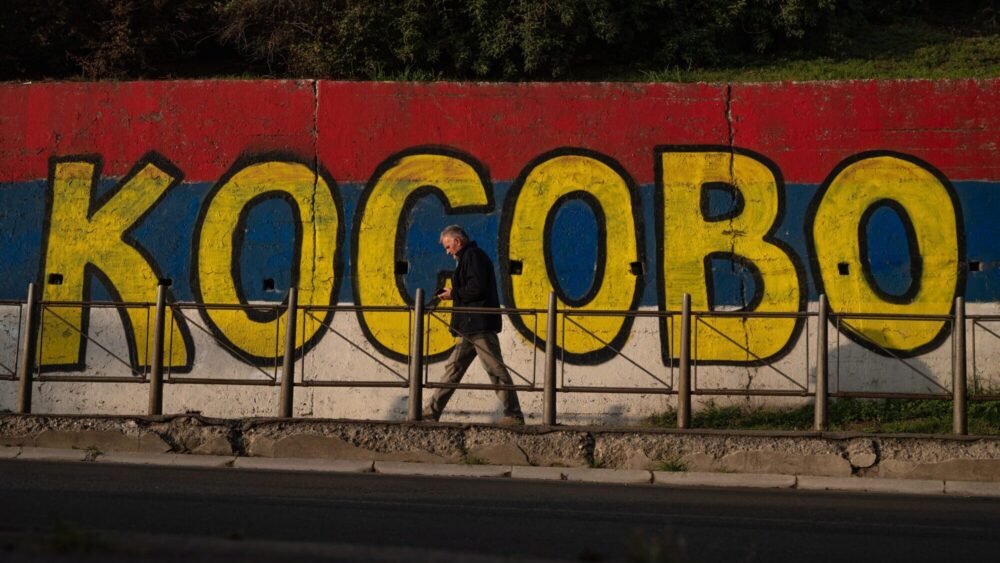
A pedestrian walks past a mural painted in colours of the Serbian flag, reading “Kosovo,” in Belgrade on October 1, 2023.
Credit: ANDREJ ISAKOVIC/AFP
The Balkans featured at a hectic European Council meeting in Brussels on Thursday as Serbian leader Aleksandar Vučić and his Kosovar counterpart Albin Kurti met with European leaders in a series of sideline meetings to address a recent flare-up in violence as the EU seeks to integrate the two nations over the next decade.
The two leaders sat down with EU foreign policy chief Josep Borrell to discuss a Brussels proposal for Kosovo to grant greater autonomy to ethnic Serbs at a municipal level. EU officials expressed hope that this will encourage Serbia to commence the process of normalising relations with what it regards as a breakaway province.
Both Kosovo and Serbia have been on edge since the summer over the status of ethnic Serbs in northern Kosovo, with the issue boiling over in a high-profile shootout between Serbian nationalists and Kosovar authorities last month that resulted in speculation that Belgrade may intervene militarily.
The deteriorating relations come as the EU seeks closer ties with both nations as part of wider plans in the Western Balkans. Eurocrats want to use the prospect of potential EU membership as a way for both sides to alter their positions.
The recent appointment of Kosovar mayors in majority Serbian towns in northern Kosovo has also sparked a diplomatic war between the two countries, while many EU insiders fear that Russia could leverage historically strong links with Belgrade to destabilise the entire region.
The acrimony over the status of minority Serbs in Kosovo derailed previously promising signs that both countries would normalise relations at March’s Ohrid Agreement, welcomed by both the EU and the U.S.
As a legacy of the ugly breakup of Yugoslavia, Serbia maintains strict irredentist claims against Kosovo, which declared independence in 2008 and has existed since then with material and diplomatic support from the West.
European diplomats had clashed in private earlier at the Council over the phrasing of the EU’s official line on the matter, with Hungary understood to have pushed for more lenient language towards the Serbian side of the argument.
In an interview before Thursday’s meetings, Vučić described his belief that the EU was looking to “equalise the blame” regarding recent tensions, as he expressed scepticism over the idea that Kosovo would give Serbs living within its borders ethnic recognition.
Kosovo’s ex-foreign minister also suggested that plans to grant Serbs in Kosovo partial autonomy were dead as both leaders met separately with Meloni, Scholz, and Macron to discuss their grievances and current EU aspirations.
